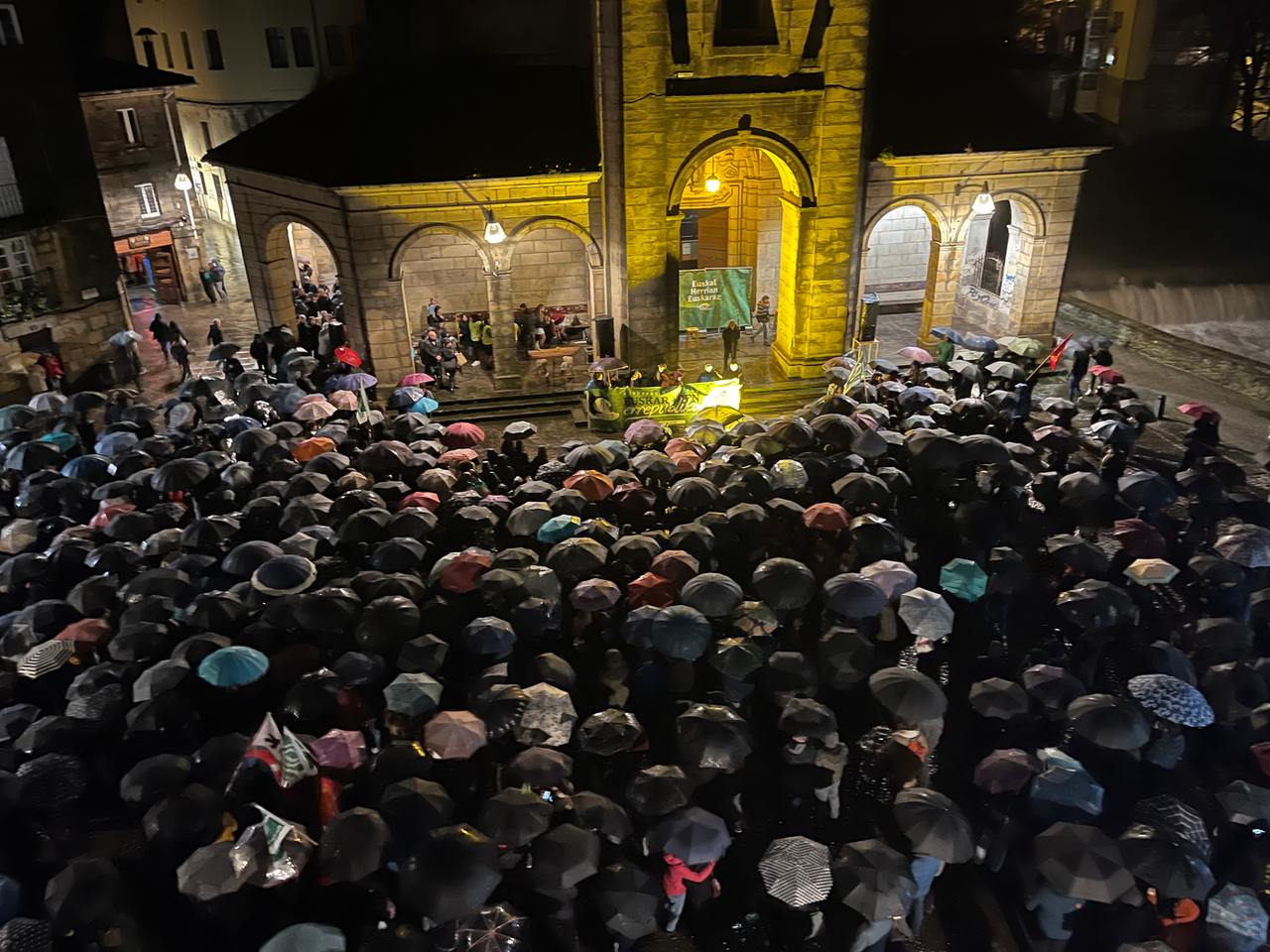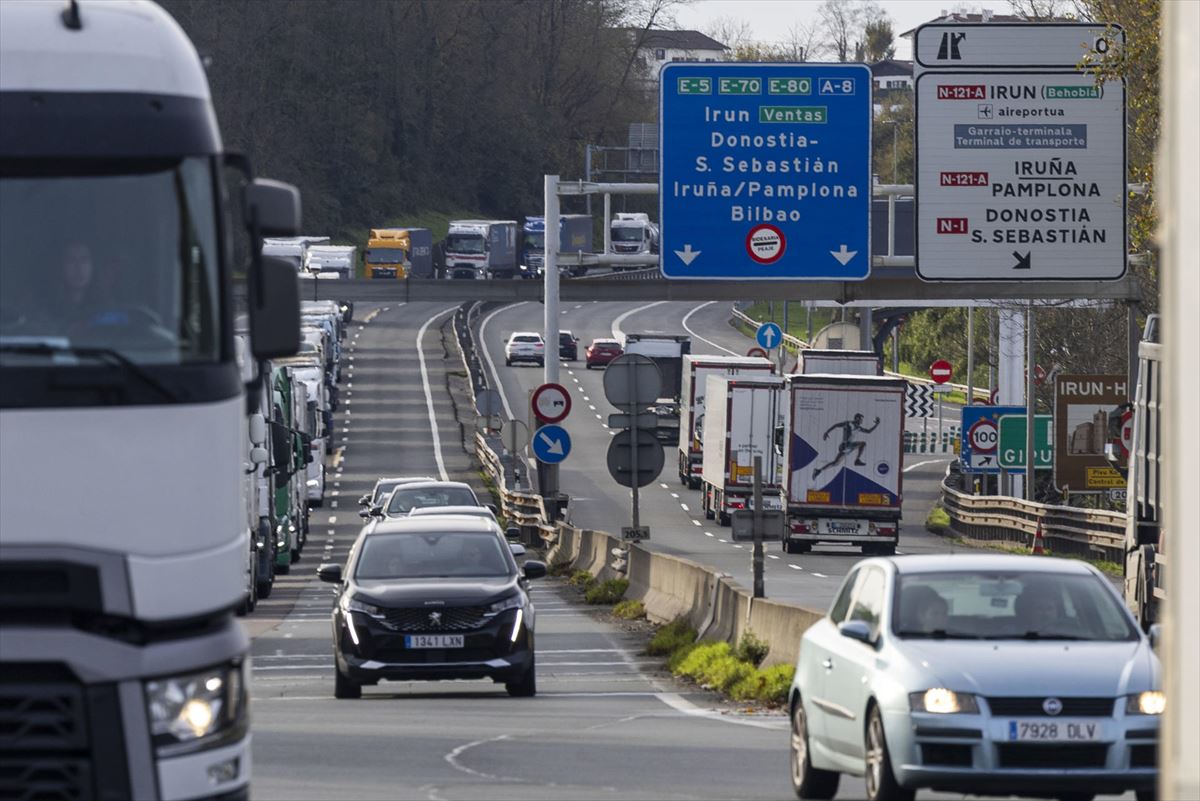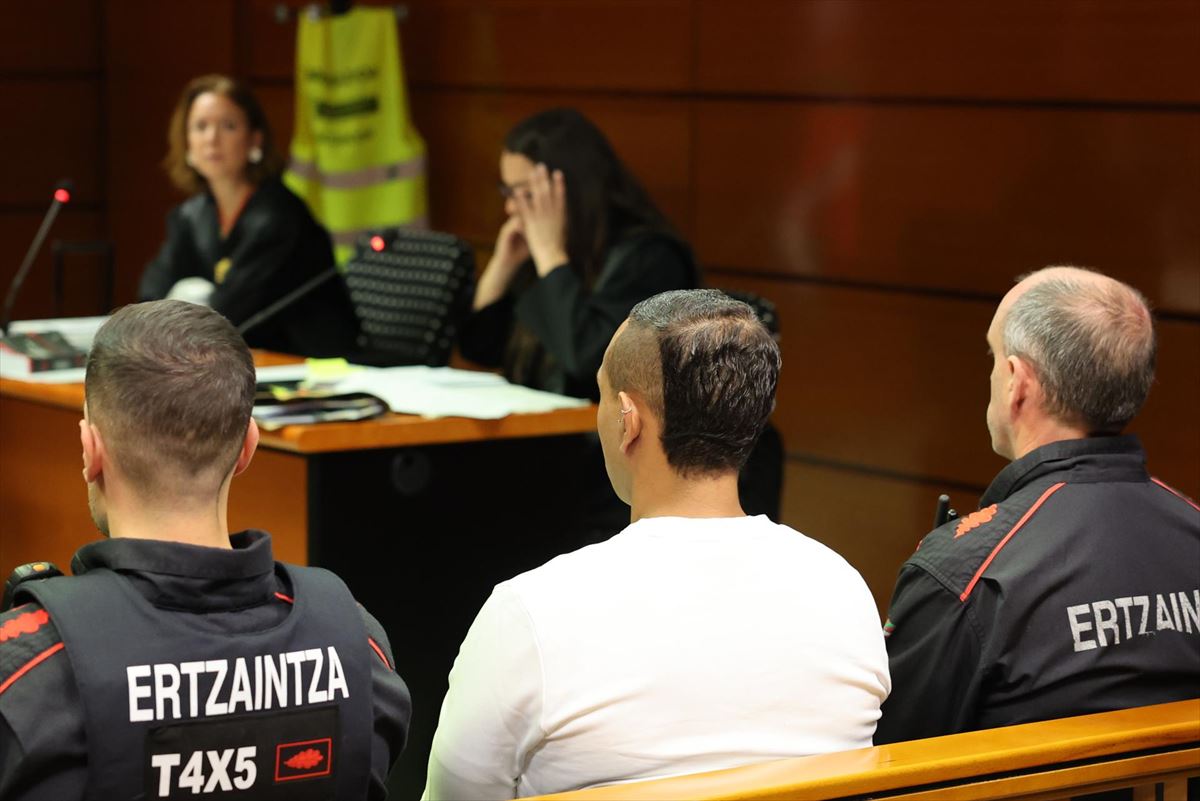On 16 September the trial of Herrira, Jaiki Adi, ETXERAT, Mediators and Lawyers of Basque Prisoners began
- The trial in summary 11/13 against Herrira, Jaiki Adi, ETXERAT and the mediators and lawyers of Basque political prisoners will be held on 16 September. The trial for these events will take place at the Spanish National Hearing and will last for at least three months.

It has been five to six years since the Civil Guard arrested the 47 Basques detained in the anti-terrorist operation against Segi. Some of them were incarcerated and all of them were prosecuted. They have since been held on probation pending trial at the Spanish National Court.
In a note sent to the media, the defendants have explained that during all these years they have been present for the trial to be faced at any time. Every fifteen days they have come to the courts and have been banned from leaving the Spanish State. "This situation has conditioned our lives, our lives and those of our closest environment, those of those we love and who we are. We have in front of us the ghost of prison. Our relatives have before them the ghost of our absence, our dispersion and the imprisonment of a person they love. So the situation is tough, we are not going to deny it," they said.
"We've organized for a just cause."
"To organize mobilizations for the rights of Basque political prisoners, to ensure the health of prisoners, to defend prisoners in court, to mediate, to be relatives of prisoners and to organize themselves to fight dispersion. This has been our job, and this is what you're going to judge."
They say that they have been organized for a "just cause", "we have organized solidarity, we have demanded human rights, and we have worked to ensure that prisoners and exiles are in the people." They state that they have acted at all times in relation to their ethical and political principles.
In his words, "this process, which is born in the sewers of the State, is a legal and social barbarity". They state that their work has been entirely public and that it has had clear objectives: "That the rights of Basque prisoners be respected in order to consolidate once and for all a scenario of peace with justice in the Basque Country".
They have denounced that the "involution" that is taking place around the world and the "violation of rights" are "enormous", as demonstrated by the situation of Basque prisoners. In the event, the young people of Alsasua and also the cases of Catalonia were mentioned.
They have announced that they will not stand still and that they will denounce the injustice of the trial, 'wherever it is needed and whenever it is needed'. They have said that they want to make this way with other citizens, because "we are the most effective guarantee to change the situation and move forward on the road to justice".
Finally, they have affirmed that they "believe in a new future" and want "an Basque Country living in justice, living in peace and without any kind of violence". Through truth, empathy and zubigintza, our hands and our minds are willing to make that path."
Case development
The case was examined by Judge Eloy Velasco of the National Court. The jury is composed of Alfonso Guevara – president –, Clara Bayarri – rapporteur – and Guillermo Ruiz Polanco. The prosecutor has called for almost 600 years ' imprisonment for the 48 accused of abuses. They are all accused of belonging to armed gangs, except one who, in their opinion, is accused of collaborating with armed gangs. All the events charged against them date back to 2012, 2013 and 2014, following the end of ETA’s armed struggle – 20 October 2011.
Judge Guevara is very controversial in the National High Court for her unabridged tone or for clashes with other colleagues and drivers, among other reasons; however, she also has a reputation of severe and is said not to be respected when other powers try to enter its scope.
Clara Bayarri is known as a progressive in the Spanish trial and, for example, in the judgment that issued a particular vote in the macrosumario of the Herriko Tabernas, showing his disagreement with the sentence imposed. In their opinion, the majority of those convicted at the time were essentially in political activity, the crimes against them were not covered by the penal code and, furthermore, there was insufficient evidence to link the defendants with ETA.
The oral trial for the Egunkaria case has not yet taken place and it seems that it will take a long time. Apparently, it will not take place before the fall of 2018. At the end of September, the Public Prosecutor’s Office filed a petition for punishment, and now the particular indictment, exercised by the AVT and Dignity and Justice, has to make its demands. It will then be the time for the written defence of the lawyers present at the trial.
On the subject, the Herrira case: You can read a report on the 600 year prison sentence for supporting prisoners.
We're completing the news.
Agorrilaren 27an igorri nizuen gutunean, irailaren 10eko auzian euskaraz deklaratzeko asmoa nuela adierazi nizuen. Auzi honen hastapenean, epaile nagusiari euskaraz zekienez galdegin nion. Gutxiespenarekin ezetz erantzun zidan. Orduan, nere gutuna eskuratu zuenez frantsesez... [+]








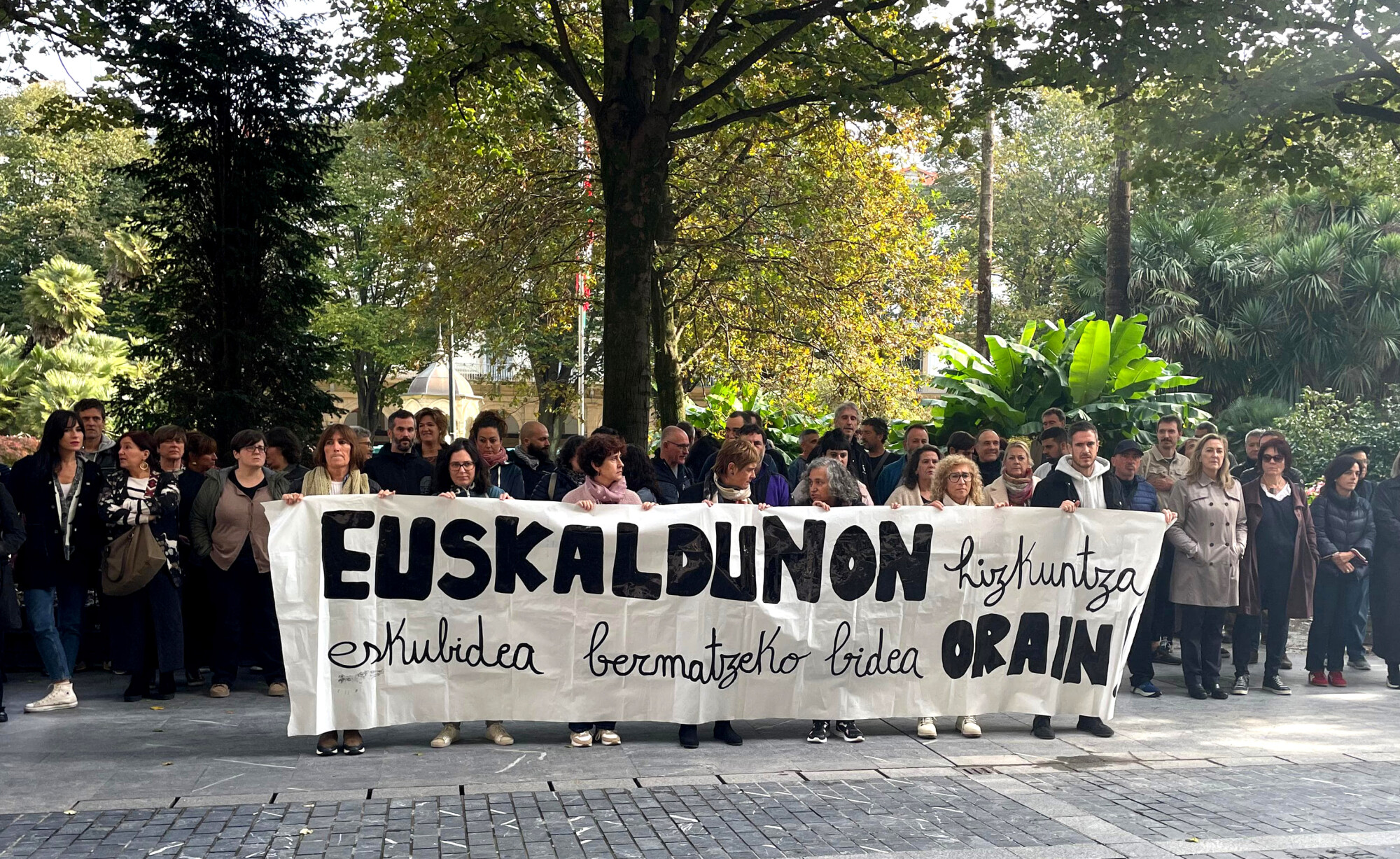

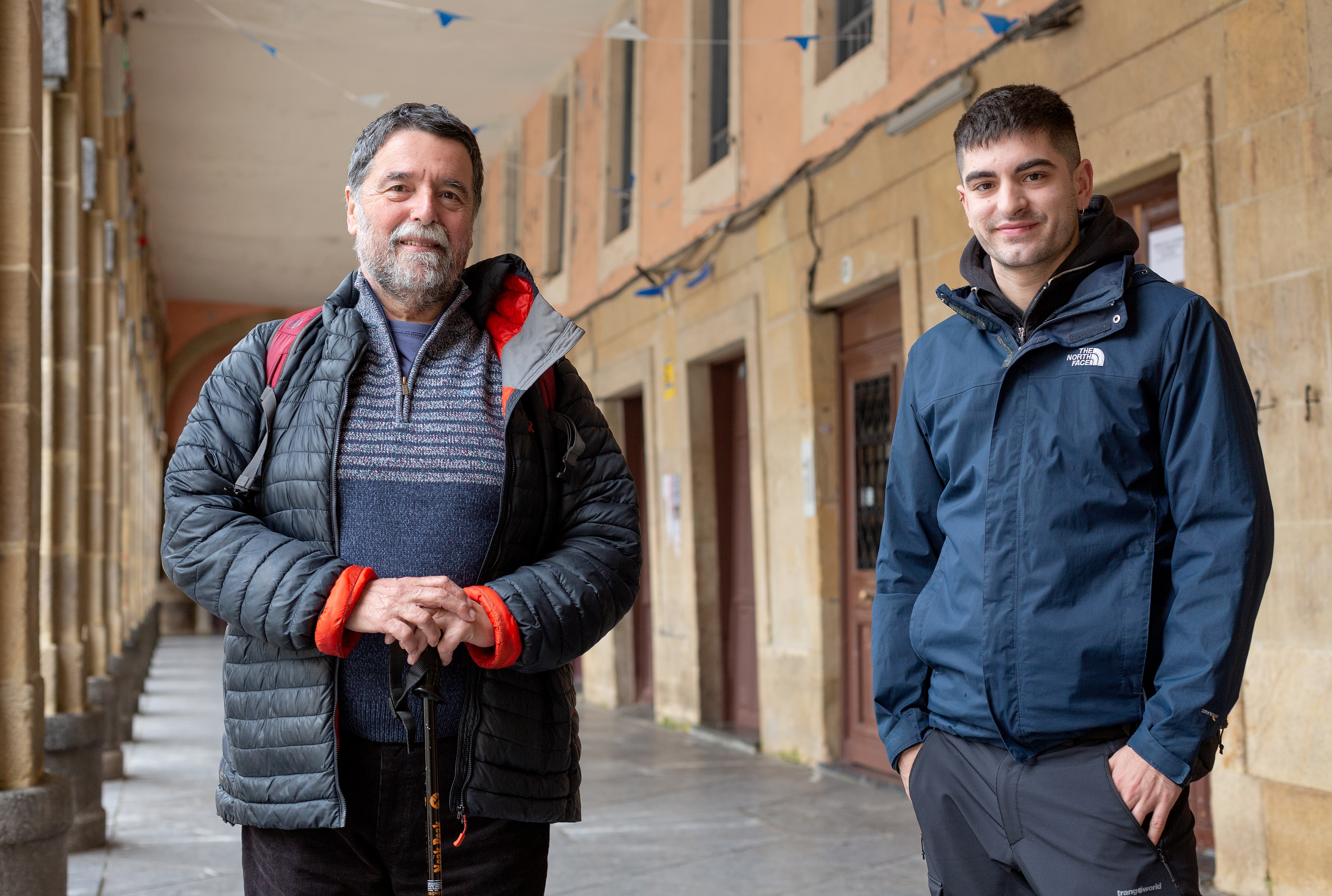
.jpg)
